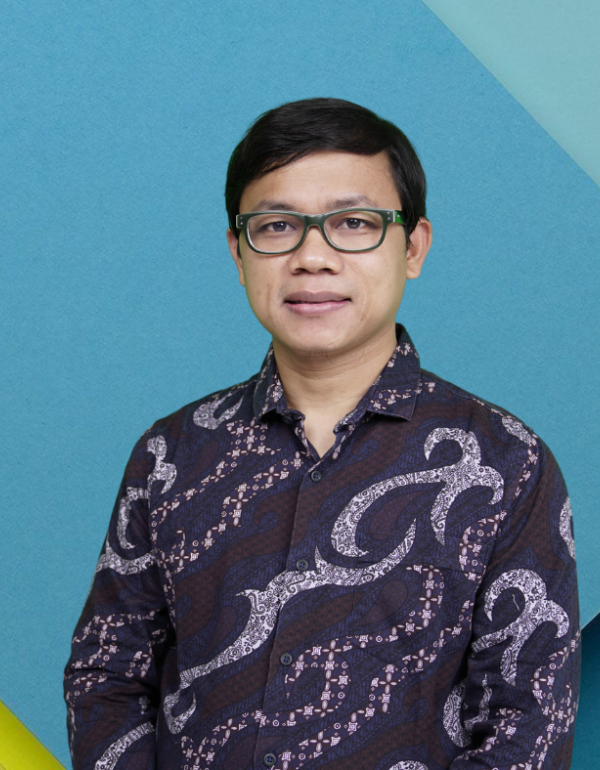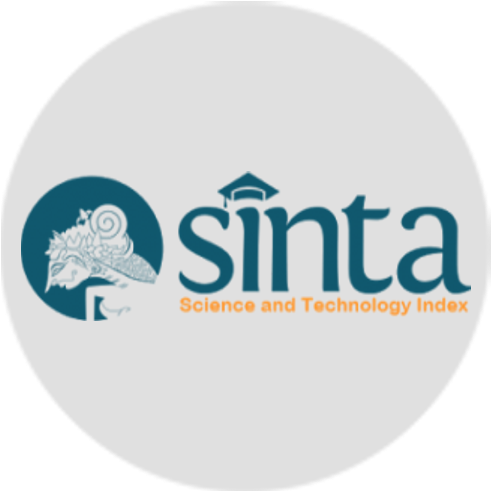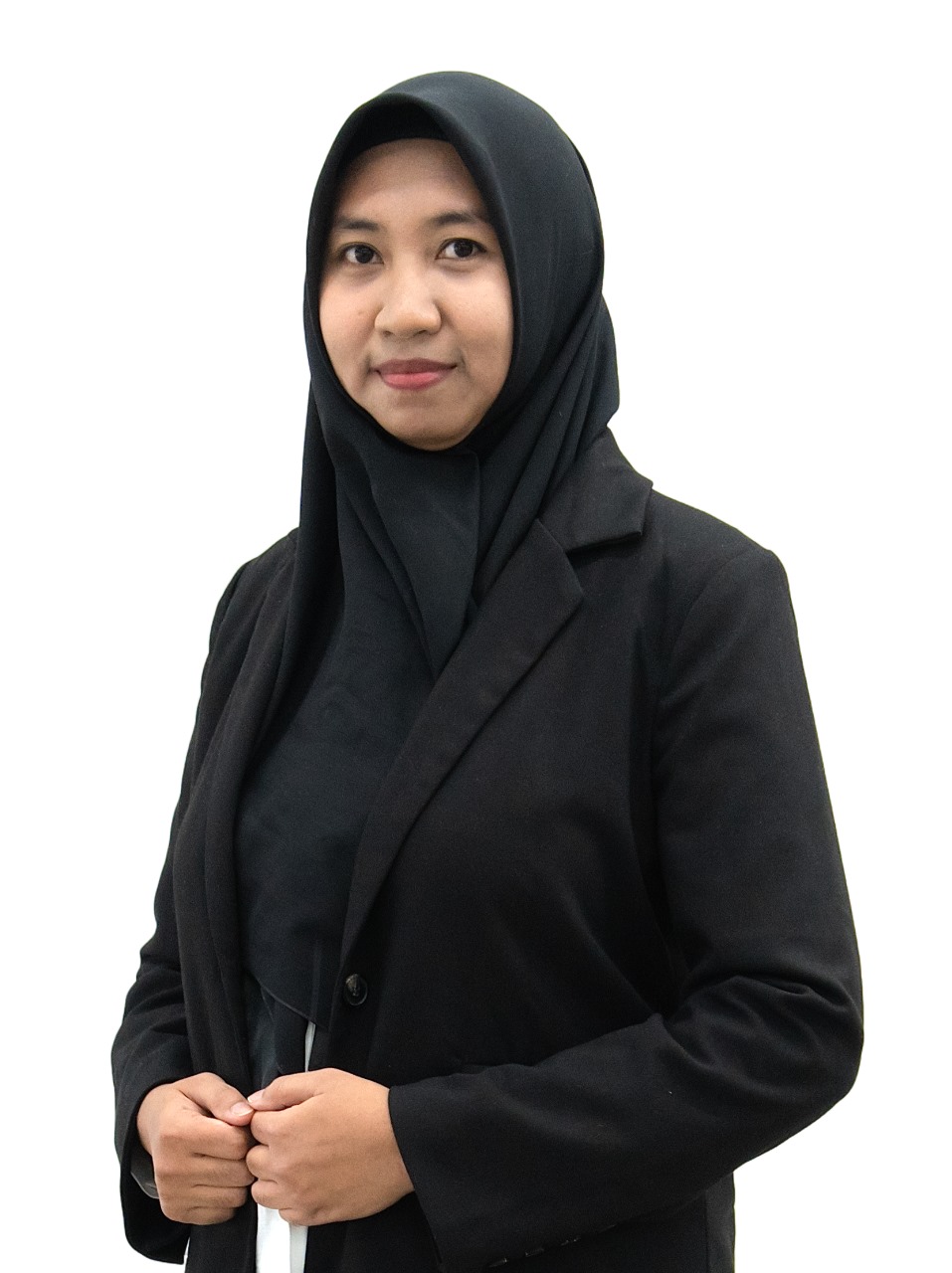Administration and Academic Forms
Administration and Academic Forms
Providing easy access to essential academic documents and procedures, streamlining administrative tasks for students.
Nothing found.
Nurturing Critical Consciousness through Faith: Integrating Fitrah-Based Education in the Transformation of Islamic Early Childhood Education
 Ferdiana, Ajeng. (2025). Nurturing Critical Consciousness through Faith: Integrating Fitrah-Based Education in the Transformation of Islamic Early Childhood Education. SEA-CECCEP. 6. 162-175. 10.70896/seaceccep.v6i01.114.
Ferdiana, Ajeng. (2025). Nurturing Critical Consciousness through Faith: Integrating Fitrah-Based Education in the Transformation of Islamic Early Childhood Education. SEA-CECCEP. 6. 162-175. 10.70896/seaceccep.v6i01.114.
Abstract
Early childhood Islamic education is important because it influences children’s spirituality, character, and worldview. However, in practice, many early childhood education institutions in Islamic countries are still oriented towards a memorization and dogmatic approach, which provides little space for the development of children’s critical thinking from an early age. This article aims to examine the integration of a fitrah-based education approach in transforming early childhood Islamic education, with a focus on its potential to foster critical awareness rooted in faith. This study employs a qualitative method, drawing on literature reviews, a case study, and interviews with the management and a teacher of the BATAS Study. This early childhood education institution implements a fitrah-based education approach. The results of the study show that education based on fitrah can encourage children to think reflectively, understand values contextually, and internalize Islamic spirituality meaningfully. The main challenges include changing the role of teachers from being full authorities in learning to facilitators and nurturers of the child’s maximum potential. The BATAS Study offers a real-life example of how integrating faith, freedom of thought, and emotional guidance can shape children into independent, empathetic, and socially aware individuals. This article recommends a more transformative and dialogical approach to Islamic education, one that humanizes children from an early age, aligning with their inherent nature.
Budi Waluyo, Ph.D.
About SIR Fellow
Budi Waluyo, PhD is an Associate Professor at the Polytechnic of State Finance STAN, a special-purpose university under Indonesia’s Ministry of Finance. He earned his PhD from the University of Leicester, United Kingdom, with a thesis titled “Management by Accounting: An Ethnography of Agencification.”
His research bridges public management, accounting, and finance, focusing on the dynamics of semi-autonomous agencies (Badan Layanan Umum, BLU) and autonomous universities (Perguruan Tinggi Negeri Badan Hukum, PTNBH), financial governance, and the role of accounting in society. His works interrogate how accounting and finance mediate autonomy and control in the public sector, particularly in higher education and healthcare contexts. His scholarship combines ethnographic sensitivity with institutional analysis, illuminating how managerial tools shape everyday practices in public administration. His recent projects include State Reform in Timor-Leste (funded by the Indonesian AID) and Performance of Public Service Agencies (funded by the Ministry of Finance). Budi currently leads academic initiatives on higher education governance.
Budi actively disseminates insights through public lectures and opinion pieces in national newspapers, including The Jakarta Post and The Independent Observer. He has published in leading international journals such as the International Journal of Public Sector Management and contributed chapters to the Handbook of Accounting in Society (Edward Elgar, 2024), and Indigenous Experiences with Collaborative Governance (Berghahn Books, 2025).
Budi Waluyo’s professional experience spans teaching, research, and administration. At the Polytechnic of State Finance STAN, he has taught courses in state finance, financial management, and strategic management. Beyond teaching, he has led research groups, supervised student theses, and contributed to public policy through reports for Indonesia’s Ministry of Finance. Budi served as Deputy Director of Student Affairs (2021–2025), overseeing student development programs and initiating international collaborations with overseas universities.
Internationally, Budi has presented his work at major academic forums, including the International Research Society for Public Management (IRSPM), the International Association of Schools and Institutes of Administration (IASIA), and the Association of Asian Studies of Australia (AASA). He has also been an invited speaker at events organized by the Association of Chartered Certified Accountants (ACCA) Asia-Pacific Dialogue in Vietnam and at universities such as Universitas Gadjah Mada and Politeknik Negeri Bandung.
Budi is also the founder of Rumah Beasiswa, a voluntary community supporting scholarship hunters across Indonesia. Since 2019, he has been a mentor with Indonesia Mengglobal, assisting Indonesian citizens to apply for master’s and PhD degrees at top overseas universities. A dedicated family man, Budi enjoys culinary travel in his free time. Budi can be contacted at: budi.waluyo@pknstan.ac.id
University of Leicester, United Kingdom. 29/01/2021
Master
Prasetiya Mulya University, Indonesia. 15/06/2009
Bachelor
State College of Accounting, Indonesia. 17/05/2005
Polytechnic of State Finance STAN, Jakarta. 2023 – Present
Assistant Professor
Polytechnic of State Finance STAN, Jakarta. 2020 – 2022
Teaching Assistant
School of Business, University of Leicester, United Kingdom. 2017–2019
Lecturer
State College of Accounting, Jakarta. 2006–2015
Journal Articles and Book Chapters
Waluyo, B., Fuady, M., and Sulaeman, A. S. (2025), Engaging sacred wisdom in public administration: everyday practice of tribal governance in Indonesia, in Rivera, Jason and Companion, Michele (Eds.) Indigenous Experiences with Collaborative Governance: Moving Toward Equitable Partnerships. Berghahn Books: Oxford.
https://www.berghahnbooks.com/downloads/OpenAccess/CompanionIndigenous/9781836951674_OA.pdf
Panjaitan, R. P., Waluyo, B., & Sugiri, D. (2025). Assessing efficiency in state universities: Evidence from the Analytical Hierarchy Process. Journal of Public Sector Innovations, 9(2), 73–85. https://journal.unesa.ac.id/index.php/jpsi/article/view/38775/13523
Waluyo, B. (2024). ‘Management by accounting’: the roles of accounting in agencification in Vollmer, H. (Ed.) Handbook of Accounting in Society, Edward Elgar Publishing: Cheltenham, pp. 107–122. https://doi.org/10.4337/9781803922003.00018
https://drive.google.com/file/d/1qTjGesF0huj_4aoKJgT1JMnT4r4xKuZp/view?usp=sharing
Waluyo, B. (2022). The tides of agencification: Literature development and future directions. International Journal of Public Sector Management, Vol. 35 No. 1, pp. 34–60.
https://doi.org/10.1108/IJPSM-04-2020-0105
https://drive.google.com/file/d/1FBtk1x7YuOCdBQCZ6s7n3eEobo8wJWS7/view?usp=sharing
Depari, A. dan Waluyo, B. (2022), Managing Intellectual Capital in Public Hospital: Effects on Financial Performance, Management Analysis Journal, Vol. 11 No. 4, pp. 372-383. https://journal.unnes.ac.id/sju/index.php/maj/article/view/61733/23418
Waluyo, B. (2021), Accounting Standards for Semi-Autonomous Agencies: Experiences and Lessons from Indonesia, The Indonesian Journal of Accounting Research, Vol. 24 No. 3, pp. 321-348, https://doi.org/33312/ijar.539
Waluyo, B. (2021). Accounting standards for semi- utonomous agencies: experiences and lessons from Indonesia. The Indonesian Journal of Accounting Research, Vol. 24 No. 3, pp. 321–348. https://doi.org/10.33312/ijar.539
https://drive.google.com/file/d/131CrZhcSy5s1gNY9pRdoBUeSWd6yVKky/view?usp=sharing
Waluyo, B. (2021), ‘Public Service Agencies’, in Erawati, E., Kurniawan E. and Pradipta, R. (Eds.) State Budget in Depth: Deep Dive on the State Budget, Polytechnic of State Finance, pp. 16-29. ISBN: 978-623-6784-24-2
Waluyo, B. (2020), ‘Towards A World Class University’, in Widodo, C., Ika, S., Syafriadi, S., Ling, M. and Lukman, M. (Eds.) Handbook of Public Service Agencies, The Ministry of Finance, pp. 183-200. ISBN 978-623-63821-6-5 and ISBN 978-623-63821-7-2.
Waluyo, B. (2018), ‘Concept and implementation of public private partnership in vocational education’, in Ferary, D. (Ed.) Vocational Education System in the United Kingdom, The Embassy of the Republic of Indonesia: London, pp. 151-170. ISBN: 978-0-9928864-6-2.
Waluyo, B. (2018). Balancing financial autonomy and control in agencification: Issues emerging from the Indonesian higher education. International Journal of Public Sector Management, Vol. 31 No. 7, pp. 794–810.
https://doi.org/10.1108/IJPSM-10-2017-0272
https://drive.google.com/file/d/1JZuC7L-_yJ-ZJtZBJ7ZcPH817aJj5V2l/view?usp=sharing
Public Engagement and Policy Commentary
Waluyo, B. (2025), Budget cuts for state universities: Challenges and ways forward, The Independent Observer. https://observerid.com/budget-cuts-for-state-universities-challenges-and-ways-forward/
Waluyo, B. (2024), Accounting metrics prompt state universities to raise tuition fees, The Jakarta Post.
https://drive.google.com/file/d/1rHT0xy63u90RRWMZh6YgzH9cmuVFKhwF/view?usp=sharing
Waluyo, B. (2018), Autonomy and control at State Universities, The Jakarta Post.
https://www.researchgate.net/publication/369913351_Autonomy_and_control_at_State_Universities
Conference Papers/Proceedings
Waluyo, B. (2025), Negotiating space and place in management accounting studies: insights from here- and there-ness of ethnographic fieldwork, paper presented at the Accounting and Accountability in Emerging Economies Conference, Universitas Udayana, Bali, Indonesia.
Waluyo, B., Fuady, M., and Sulaeman, A. S. (2024), Engaging sacred wisdom in public administration: everyday practice of tribal governance, paper presented at the 25th Biennial Asian Studies Association of Australia (ASAA) Conference, Curtin University, Australia.
Waluyo, B., Sabnita, N. and Adhitama, S. (2023), Communication Management in The Public Sector: Practices and Challenges, paper presented at the IASIA Conference, University of the Philippines, the Philippines. https://drive.google.com/file/d/1Sh5V4mHPBF9u-U6wL519pHjTlbUnQzUe/view?usp=sharing
Waluyo, B. (2021), When ‘everyone must become a calculator’: Everyday accountings in semi-autonomous agencies, paper presented at the International Research Society of Public Management (IRSPM) Conference, Tempere University, Finland. https://www.researchgate.net/publication/369913154_When_'everyone_must_become_a_calculator'_Everyday_accountings_in_semi-autonomous_agencies
Waluyo, B. And Slamet, K. (2018), Realizing Greater Autonomy: How Public Universities Resist Governmental Control. Paper presented at the 2018 Annual Conference of Asian Association for Public Administration (AAPA), Universitas Gadjah Mada, Indonesia. https://www.researchgate.net/publication/369913216_Realizing_Greater_Autonomy_How_Public_Universities_Resist_Governmental_Control
Waluyo, B. (2017), Making Dual Accounting Standards Work: Cases of the Indonesian Higher Education. Educational Conference, University of Birmingham, UK. http://epapers.bham.ac.uk/2979/1/Full_Book_Research_conference_November_2016.pdf
Waluyo, B. (2017), Budgeting Flexibility and Performance-based Budgeting: an Institutional Perspective. Paper presented at the 21st International Research Society of Public Management (IRSPM) Conference, Corvinus University, Budapest. https://www.researchgate.net/publication/369913009_Budgeting_Flexibility_and_Performance-Based_Budgeting_An_Institutional_Perspective
Waluyo, B. (2017), The Illusion of Financial Performance: Lesson from Public Sector Agencification in Indonesia. Paper presented at the British Accounting and Finance Association (BAFA) Conference, Herriot Watt University, Edinburgh, UK. https://www.researchgate.net/publication/369913008_The_Illusion_of_Financial_Performance_Lesson_from_Public_Sector_Agencification_in_Indonesia
Waluyo, B. (2017), Agencification and Leadership: Cases in the Indonesian Higher Education. Paper presented at the 2nd Public Policy and Leadership (PUPOL) Conference, Open University, Milton Keynes, UK. https://www.researchgate.net/publication/369913067_Agencification_and_leadership_Cases_of_the_Indonesian_higher_education
Waluyo, B., Sari, D. and Resque, F. (2016), Analysis of Idle Cash of the Central Government. Academic Forum on State Finance, Jakarta, Indonesia. https://jurnal.bppk.kemenkeu.go.id/fikn/issue/view/25
Waluyo, B. (2016), Agencification in the Indonesian Public Service: Cases of Higher Education. Paper presented at the 20th International Research Society of Public Management (IRSPM) Conference, Polytechnic University of Hong Kong, Hong Kong.
Waluyo, B. (2016), Examining Dual Accounting Standards in the Indonesian Public Service Agency: Cases of Higher Education. Paper presented at the International Conference of Educational Management Administration and Leadership, Universitas Pendidikan Indonesia, Bandung, Indonesia. https://www.researchgate.net/publication/309035137_Examining_Dual_Accounting_Standards_in_the_Indonesian_Public_Service_Agency_Cases_of_Higher_Education
Taufik Ikhsan Slamet, Ph.D.
About SIR Fellow
Taufik Ikhsan Slamet, Ph.D., is an Assistant Professor in the Department of Educational Technology, Faculty of Education, Universitas Negeri Malang, Indonesia. He earned his bachelor’s and master’s degrees in Educational Technology from UPI Bandung and UM Malang, and later completed his Ph.D. in Instructional Systems Technology with a minor in Media Arts and Sciences at Indiana University Bloomington, USA.
Taufik’s career bridges industry and academia, beginning in an IT company serving healthcare and education sectors before moving into higher education. His research passion lies at the intersection of instructional design, game-based learning, and education for sustainability, where he explores creative ways to make learning both meaningful and engaging.
When he’s not deep in research or design, Taufik enjoys spending quality time with his family and finding playful inspiration in everyday life. For him, every minute is design inspiration.
For academic and research inquiries, he can be reached at taufik.ikhsan.tep@um.ac.id.
Indiana University Bloomington, IN, USA (2019-2024)
MA in Instructional Technology
Universitas Negeri Malang (2010-2012)
BA in Educational Technology
Universitas Pendidikan Indonesia (2005-1010)
Department of Educational Technology, State University of Malang, Indonesia
Associate Instructor (August 2021 - May 2023)
Instructional Systems Technology dept., School of Education,
Indiana University Bloomington, IN, USA
Graduate Research Assistant (January-December 2021)
Applied Health Science dept., School of Public Health,
Indiana University Bloomington, IN, USA
University Instructor (September 2014 - August 2015)
Department of Computer Education and Informatics, Surya College of Education,
Tangerang, Indonesia
Training Analyst (Sept 2012 – Dec 2013)
Daya Indosa Pratama, IT Solution Provider for Healthcare and Education, Indonesia
Slamet, T. & Meng, Chen. (in press). Gamification in Collaborative Learning: Synthesizing Evidence through Meta-Analysis. Journal of Computers in Education.
Slamet, T., Brush, T., & Kwon, K. (2024). The Effects of Competition in Gamified Online Discussions on Learners’ Behavioral and Cognitive Engagement. Technology, Knowledge and Learning, 1-27.
Learning Design and Technologies
This course introduces the basic principles of learning, instruction and curriculum design and guide students to be able to develop materials to support teaching and learning within the educational context. This course will be focus on the application and evaluation of technologies
and multimedia in the development of materials design and production
Educational Policy Analysis
This course is part of the program concentration for the Master of Arts in Education at Indonesian International Islamic University. It gives the student the opportunity to have a clear understanding of how policy formulates and develops in the context of a formal education setting, how policy works in education, how to analyze educational policies, and identification of who are the key interest groups and players are in the making of educational policy. The course is designed for students who likely seek to become policy analysts, researchers, or leaders in educational setting.
Education and Society
This course examines the relationships of education and society with the use of interdisciplinary approaches, since education as a discipline spans the life course and happens in many contexts within society along with its social and political dynamics. This course offers students both theoretical overview and empirical observation on how education shapes societal development and social progress by addressing various essential issues e.g. how education creates good citizens and fosters good society, how education applies in diverse cultures of a society, how education promotes social mobility and alleviates poverty, the creation of middle-class groups, economic development and individual’s income, private and social benefits of education, how education promotes political
democracy, and others.
The course sessions will also address some specific questions, among others: How should educational institutions be developed in order to play a role in making progress, improving welfare, social cohesion, social justice, and gender equality? Why do certain educational institutions with certain orientation grow and become mainstream in a society, whereas others decline or even be marginalized? The course also observes education and society by taking comparative studies in the contexts of Asian, African, and several Western countries. Given the increasing importance of the Muslim community in recent times, the course also examines a number of case studies of education in Muslim societies or in Muslim-majority countries. As the global communities have a great deal of attention for decades to education focusing on developing countries, this course will also address the role of the international agencies e.g. UNICEF, UNDP, UNESCO, the World Bank in promoting quality education for a country’s development. The main focus of this part is on the important role of international development partners in promoting quality education for the betterment of a nation. The course will be enriched with cross-subject analyses through the lenses of anthropology, sociology, political science, economics, and history.









